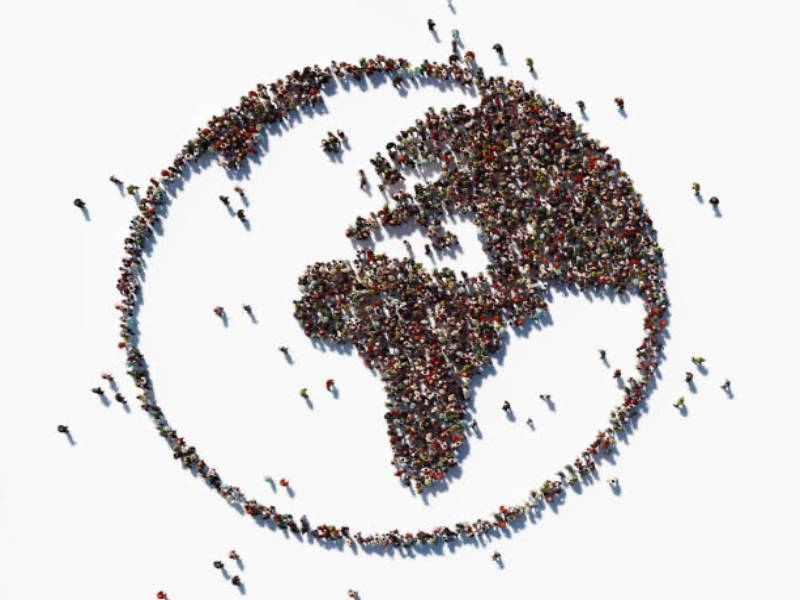World Population Day has been observed on July 11th since 1990, when the United Nations Development Programme decided to address the urgency and importance of population growth, and the challenges that come with it. This decision was made after the global population reached 5 billion people on July 11, 1987.
The UN Population Division collaborates closely with agencies, funds, programs, and bodies to address the environmental and developmental issues that are caused by a growing population. The UN missions, national government offices, United Nations offices, researchers, media representatives, and the public regularly consult the Population Division regarding population estimates, projections, analytics on population and development issues.
The UN states, “It took hundreds of thousands of years for the world population to grow to 1 billion – then in just another 200 years or so, it grew sevenfold. In 2011, the global population reached the 7 billion mark, and today, it stands at about 7.7 billion, and it’s expected to grow to around 8.5 billion in 2030, 9.7 billion in 2050, and 10.9 billion in 2100.”

With a rapidly growing population, resources will be stretched until we can no longer support everyone. Some countries are already struggling to support their citizens, while other countries, like the US, waste approximately 30-40 percent of the food supply.
According to the United Nations, there are nine standards to uphold the human right to family planning:
- Available: Countries must ensure that family planning commodities and services are accessible to everyone.
- Accessible: Countries must ensure that family planning commodities and services are accessible to everyone.
- Acceptable: Contraceptive services and information must be provided in a dignified manner, respecting both modern medical ethics and the cultures of those being accommodated.
- Good quality: Family planning information must be clearly communicated and scientifically accurate.
- Informed decision-making: Every person must be empowered to make reproductive choices with full autonomy, free of pressure, coercion, or misrepresentation.
- Privacy and confidentiality: All individuals must enjoy the right to privacy when seeking family planning information and services.
- Participation: Countries have an obligation to ensure the active and informed participation of individuals in decisions that affect them, including health issues.
- Accountability: Health systems, education systems, leaders, and policymakers must be accountable to the people they serve in all efforts to realize the human right to family planning.

According to the UNFPA, United Nations sexual and reproductive health agency, COVID-19 has created an increase in challenges in the form of continuity of essential services and on maternal and fetal outcomes.
This July 11th, take a look at your country’s policies regarding population, resources, and what you can do to make a change.
Want to learn more about the population and its effects? Click HERE.
Sources:

Kassidy Garland has had a great appreciation for reading and writing since she was young. She graduated from West Chester University in 2017 with a Bachelor’s Degree in English & Women and Gender Studies. With a concentration in creative writing, Kassidy has 5 years of experience writing blogs, articles, and for social media. Kassidy is also pursuing a Master’s degree in IT with a concentration in Web Development. Based out of Philadelphia, Kassidy loves to write about a number of topics and looks forward to sharing her passion with those at FunTimes Magazine.





